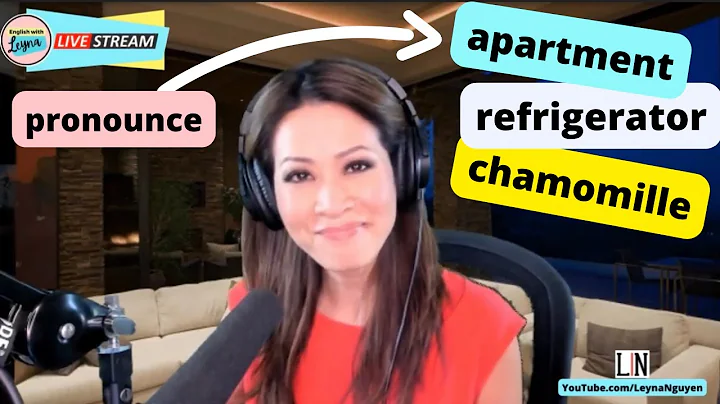Master the Top Shipping Terms for International Manufacturing
Table of Contents
- Introduction
- Understanding International Shipping Terms
- EXW - Ex Works
- FCA - Free Carrier
- FAS - Free Alongside Ship
- FOB - Free On Board
- CFR - Cost and Freight
- CPT - Carriage Paid To
- CIP - Carriage and Insurance Paid To
- DAT - Delivered At Terminal
- DAP - Delivered At Place
- DDP - Delivered Duty Paid
- Conclusion
🚢 Understanding International Shipping Terms
When it comes to doing international business and manufacturing overseas, it's essential to be familiar with shipping terms. These terms define the transfer of liability between the seller (usually the factory) and the buyer (the company purchasing the goods). By understanding these terms, you can make informed decisions and negotiate contracts effectively. In this article, we will explore the top shipping terms you need to know and consider in international business.
🚢 EXW - Ex Works
EXW, also known as Ex Works, is a shipping term where the buyer holds most of the liability for the goods. In this arrangement, the seller completes the production of the goods, and it's the buyer's responsibility to arrange for pickup, transport, and clearance of the goods. The buyer assumes the entire spectrum of responsibility, including transporting the goods to the final warehouse.
🚢 FCA - Free Carrier
FCA, or Free Carrier, is a shipping term where the seller delivers the goods to the carrier or transportation company, and the buyer assumes all remaining responsibilities. The seller is responsible for packing the goods, transporting them to the port of export, and clearing them for export. Once the goods are alongside the transport vessel, the buyer takes over, unloading the goods onto the vessel and managing everything thereafter.
🚢 FAS - Free Alongside Ship
Similar to FCA, FAS (Free Alongside Ship) involves the seller's responsibility for packing, transporting, and clearing the goods for export. However, in FAS, the seller goes a step further and places the goods alongside the transport vessel that will ship them. The buyer takes on the responsibility of unloading the goods onto the vessel, continuing with all subsequent tasks.
🚢 FOB - Free On Board
FOB, or Free On Board, is one of the most common shipping terms used in overseas manufacturing. Under FOB, the seller assumes the responsibility of packing, transporting, clearing, and loading the goods onto the transport vessel. Once the goods are on board the vessel, the buyer takes over all responsibilities.
🚢 CFR - Cost and Freight
CFR, which stands for Cost and Freight, signifies that the ownership of the goods transfers to the buyer at the port of destination. The seller is responsible for packing, transporting, and loading the goods onto the transport vessel. However, once the goods arrive at the buyer's terminal or destination, it becomes the buyer's responsibility to clear the goods, transport and offload them, and handle all further logistics.
🚢 CPT - Carriage Paid To
CPT, or Carriage Paid To, indicates that the seller bears the cost of transporting the goods to the named destination. The responsibility of the seller ends upon delivering the goods to the specified place of destination, where they are handed off to the carrier responsible for further transportation to the final warehouse.
🚢 CIP - Carriage and Insurance Paid To
CIP, short for Carriage and Insurance Paid To, operates similarly to CPT, with the added provision of insurance. The seller is responsible for both transportation and insurance costs until the goods are handed off to the carrier. It is advisable to secure an insurance policy that covers at least 110% of the total invoice value to protect against any currency fluctuations.
🚢 DAT - Delivered At Terminal
DAT, or Delivered At Terminal, indicates that the seller delivers the goods unloaded at the named terminal. The seller assumes the responsibility of offloading the goods from the transport vessel. However, if the seller is unable to arrange offloading, the term can be modified to DAP (Delivered At Place), where the transfer of liability occurs when the seller delivers the goods to the final import terminal.
🚢 DDP - Delivered Duty Paid
DDP, or Delivered Duty Paid, places maximum liability on the seller. The seller is responsible for delivering the goods to the named place in the contract and covering all costs, including import duties and taxes. Once the goods are at the destination, the buyer assumes responsibility for offloading and transporting them to the final warehouse.
Conclusion
Understanding international shipping terms is crucial for successful international business and manufacturing. These terms determine the transfer of liability and help negotiate contracts and prices effectively. By familiarizing yourself with these terms, you can make informed decisions and ensure smooth shipping operations.
Resources:







